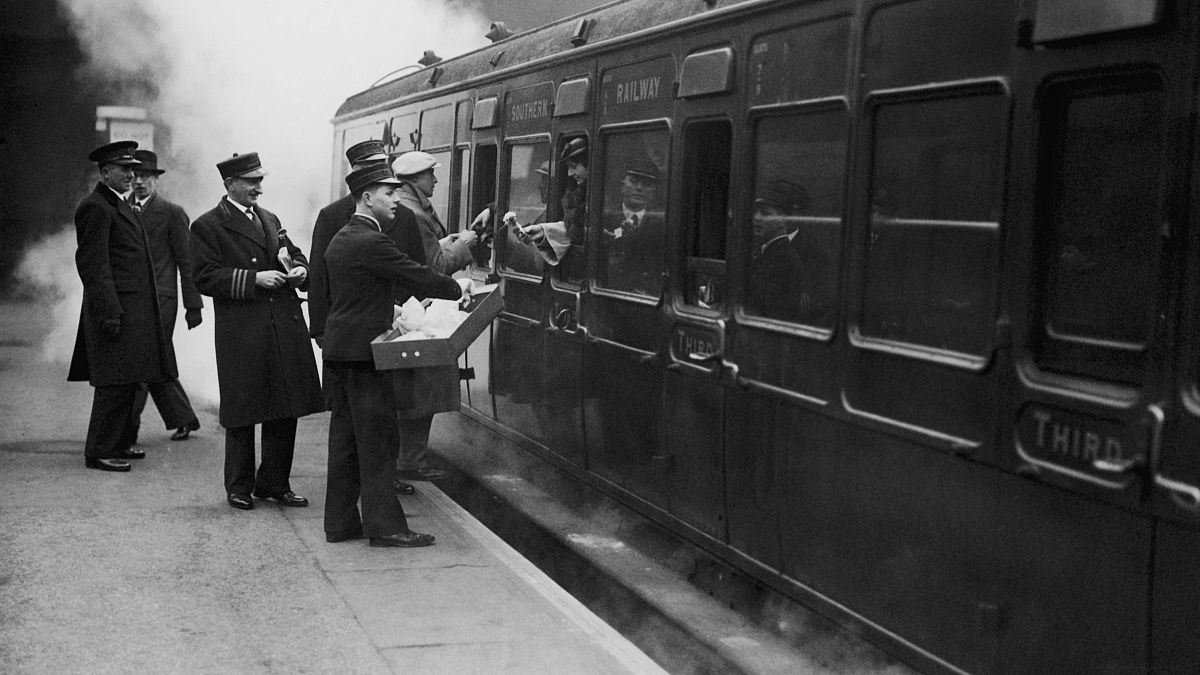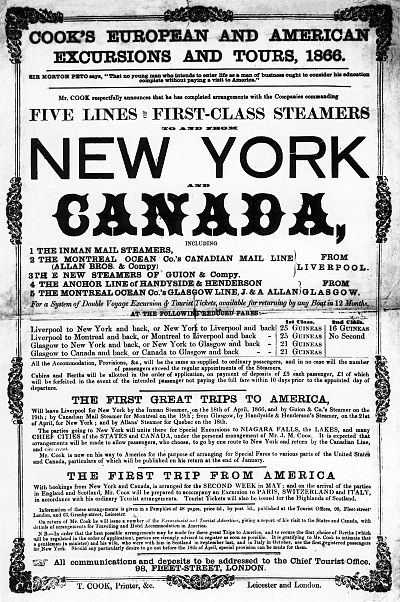The 178-year-old company began when a Baptist missionary organized 500 like minded passengers to travel to a temperance meeting in 1841.
Thousands of weary travelers were repatriated to the U.K. on Tuesday as part of a clean-up operation spelling the end of Thomas Cook's long and storied history.
Following the collapse Monday of the world's oldest tour operator, more than 14,700 vacationers had returned to the U.K., with a further 16,500 slated to arrive throughout the day, according to Britain's civil aviation authority.
The sudden collapse of the U.K. travel firm left some 150,000 British-based customers stranded from Las Vegas to Lanzarote sparking thelargest peacetime repatriation effort in British history.
The mass airlift marks an end to one of Britain's oldest firms.
Founded in 1841 by Baptist missionary Thomas Cook, the company sprang to life when Cook made it possible for 500 like-minded passengers to travel by train from Leicester in central England to a temperance meeting in nearby Loughborough.
It was "what the Victorians called rational recreation — not going to the pub and getting drunk — but doing things that were more uplifting," said Martin Daunton, an emeritus professor of economic history at the University of Cambridge.
The trip was organized at the same time as the development of the railway across Britain. And in 1855, Cook branched out on his first European tour in which travelers visited Antwerp, Brussels, Cologne, Heidelberg, Strasbourg and finally Paris for the International Exhibition.
Some 178-years after the first trip it is unclear what Cook would have thought of the contemporary travel company and the chaos that its sudden failure has caused.
It was unclear Tuesday just how many customers in total had been affected by the company's collapse. Reuters has reported that Thomas Cook currently has around 600,000 people abroad and will need the help of governments and insurance firms to bring them back.
The U.K. Civil Aviation Authority — the country's aviation regulator — said some 600,000 customers had had their vacations cancelled. Many of the vacationers were on Greek islands or in mainland Spain, according to the aviation authority, while some were further afield in the Caribbean or North Africa.
The British repatriation effort is due to last until Oct. 6 with more than 1,000 flights planned to bring people home.
Richard Moriarty, chief executive at the regulator, warned customers that there would be some inconvenience and disruption but that as far as possible they would attempt to bring travelers home on time.
"We want people to continue to enjoy their holiday, so we will bring them back to the U.K. on their original departure day, or very soon thereafter," he said in a statement on Tuesday.
As the focus begins to shift from the huge clean-up operation to what went wrong, emphasis is being placed on the company's slow adaptation to the internet age.
Many credit Cook with inventing modern tourism and allowing working and middle class people to explore Europe and the Middle East — a past-time that had before been reserved for the upper classes.
The company was given a boost in 1851 when the Great Exhibition was held in London, showcasing the world's first international display of design and manufacturing.
"It was the first time that most people in Britain are starting to benefit from the industrial revolution," said Daunton. "People had the ability to have a stake in the benefits of industry rather than just being cheap labor."
But while an innovator credited with introducing the precursor to travelers checks in 1874 and a pioneer of the package tours, fast forward around 150 years and the company has struggled to cope with the rise of online booking sites and shifting travel habits.
This combined with a $2.1 billion debt pile, the sinking British pound — widely blamed on Brexit — and an unusually hot summer weather at home discouraging Northern Europeans from travelling appear to have added up to a perfect storm that led the 178-year-old company to cease operations.

